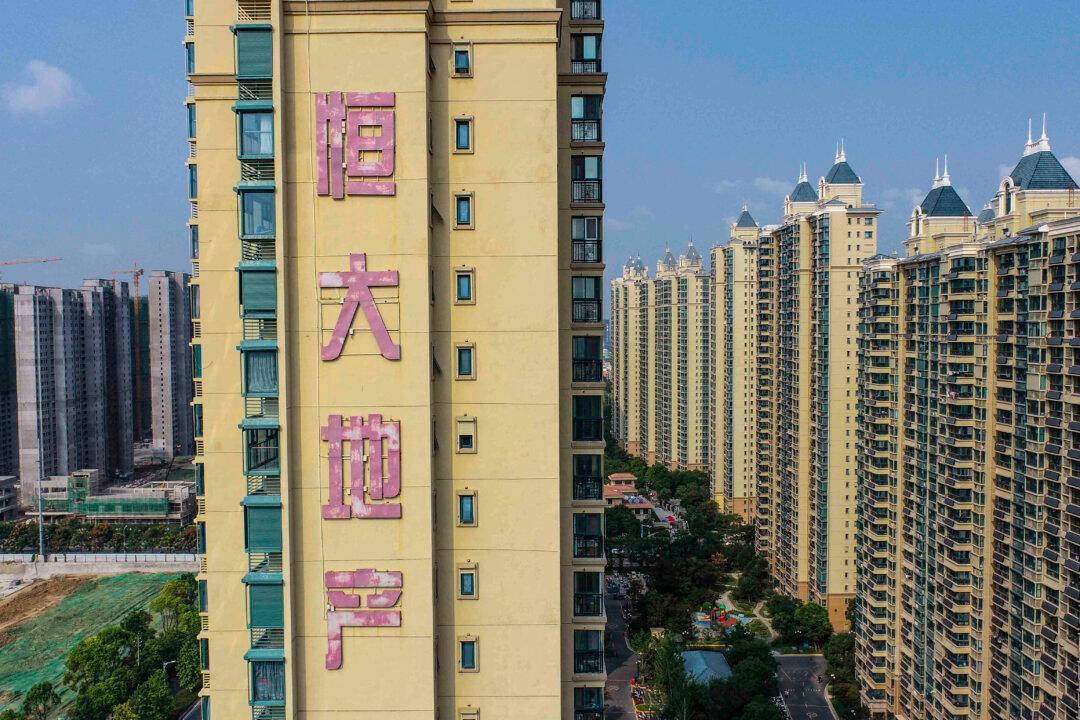A Chinese state-owned firm stepped in to buy a stake in a regional bank from China Evergrande Group in a bid to limit the potential fallout from the debt crisis at the country’s largest property developer.
Evergrande agreed to sell a 20 percent stake in Shengjing Bank co to the local Shenyang government for 10 billion yuan ($2.13 billion), with the bank demanding that all proceeds go to settle debts owed to it by the developer, according to a Sept. 29 statement to the Hong Kong stock exchange.





